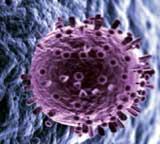
Some more on the growing concern over the H5N1 avian flu. I caught most of last weekend's airing of "The Next Plague" on The History Channel, described thusly on their web site (http://www.historychannel.com):
"With the current threat of Avian Flu spreading worldwide, President Bush talked openly about the possibility of an epidemic in the coming years. The Center for Disease Control and the World Health Organization say that we are long overdue for a deadly epidemic, and it isn't a question of if but when. Here in the US the questions are already being asked. Are we ready? How can we prevent it? What will be the cost in lives? We'll look at what effect a large-scale epidemic would have on the United States and the rest of the world. We'll ask what steps pharmaceutical companies are taking in developing vaccines and an antidote. If a nationwide quarantine is put into effect, who will enforce it--the National Guard? We also examine new evidence that the Great Epidemic of 1918 may have been an Avian Flu."
Some take-aways for me: even more contrast between the U.S. preparation efforts versus U.K. and France (as it regards stockpiles of Tamilflu) than what I recalled from the September piece on ABC's PrimeTime. Although I don't have 'magic bullet' faith in Tamiflu saving us all, it was interesting that apparently the U.S. has stockpiled enough courses of treatment for about 1% of the population, versus 25% and 20%, respectively, for U.K. and France. Makes you go, "why is that?"
Another take-away: probably should review whether a few more days worth of food and supplies on hand would be prudent, in the event that quarantine activity, or our own good judgement, means we can't go out for food and basics. It's a challenge, though. Most people don't want to go nuts planning for emergencies, but also don't want to overlook low-effort/low-cost opportunities to make these potential situations better for their families. Where do you draw that line? One of the comments from "The Next Plague" offered an image that fuels that kind of thinking: consider the disruptions and gaps in service that occurred in Louisiana and the Gulf Coast with Hurricane Katrina and the aftermath. Now broaden that from regional impact, to where its happening in just about every city and town to some degree. Yeah, I probably will grow the pantry inventory a bit.
May we all get ready, and then not need it!





